We tested every 2024 golf iron and this was the SURPRISE pound-for-pound distance king
Last updated:
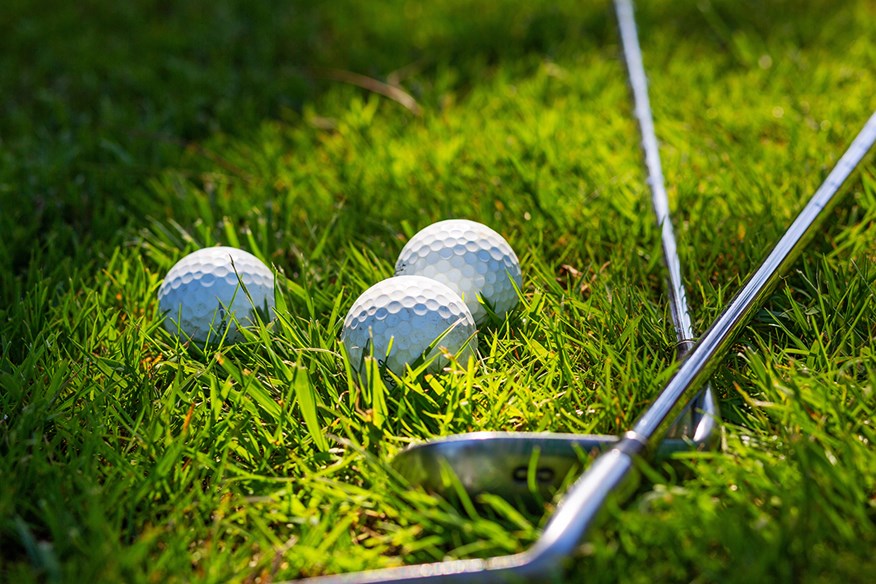
If you want maximum distance without breaking the bank, you can’t overlook these golf irons which went toe-to-toe with the industry’s big boys.
Purchasing a shiny new set of golf irons will likely be one of the biggest financial outlays you make when it comes to upgrading your golf equipment. The latest tech-infused metal from powerhouse brands will set you back well over $1,000, and even models in their second and third cycles represent a significant investment for many. It’s why our team here at Today’s Golfer strives to uncover the unsung heroes during our annual equipment tests that punch above their price tag.
The mid-handicap irons market is always the most hotly contested iron category as it caters to the widest range of golfing abilities, from single-figure handicappers to those in the mid-20s. It can be a minefield trying to narrow down the best golf irons for specific game demands, which is why we suggest in the first instance filtering options through independent and objective testing.
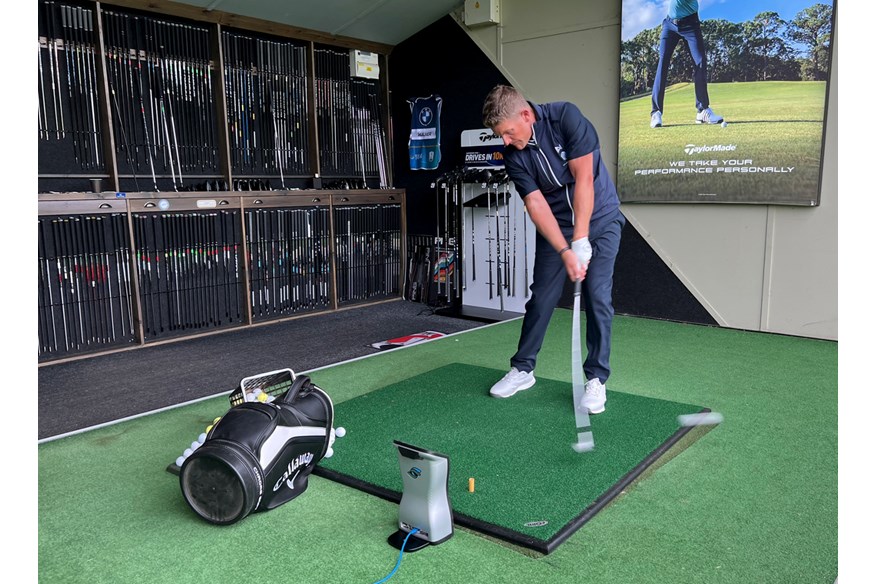
As with drivers, maximizing distance remains a top priority for many when upgrading their irons, often at the expense of forgiveness or stopping power. It’s understandable too. Who doesn’t want to be hitting shorter clubs into greens?
And while continual advances in golf club technology typically ensure irons get incrementally longer and more forgiving with each passing season, now and again, a model that’s been around the block a couple of times will fail to read the script and put in a performance that can’t go unnoticed.
In our 2024 testing, that model was…the PXG 0211 XCOR2, ranking joint first for carry distance (198 yards) with the TaylorMade Qi irons and second for ball speed (130.1 mph) behind the Callaway Paradym Ai-Smoke irons. Unlike its heavy-hitting counterparts, however, the PXGs are now approaching their fourth year in circulation, meaning they can be snapped up at a very reasonable price.
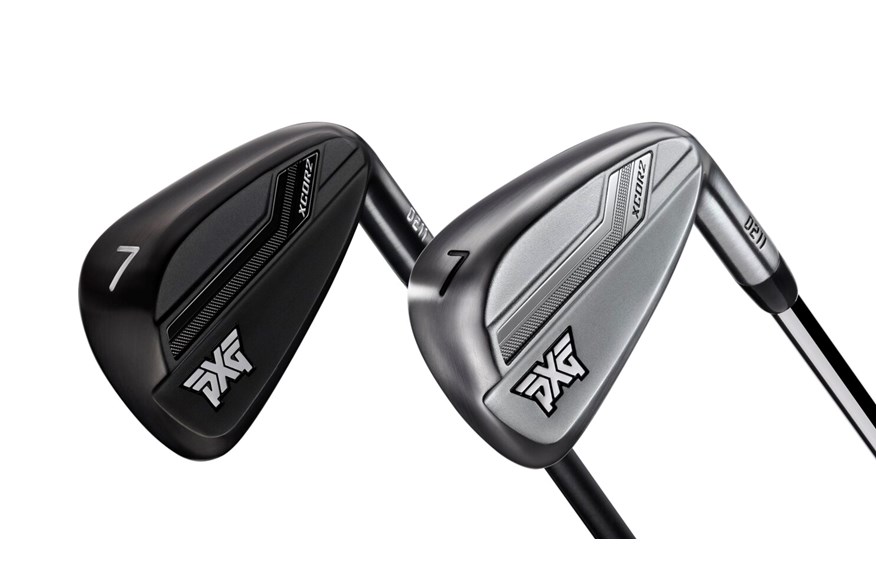
Launched back in 2022, PXG’s 0211 XCOR2 irons were conceived to wow price-sensitive golfers and compete hard against the traditional powerhouses of Ping, Callaway, TaylorMade, and the like. Inside the head, you’ll find the same XCOR2 material that’s at the core of the brand’s premium forged 0311 GEN5 iron family. And as with just about every PXG product that comes to market, they look fantastic.
At the back end of 2024, the XCOR2s can be snapped up for around $100/£85 per iron which represents a significant saving of the best part of $40/£30 per club compared to the Callaway Ai-Smoke and TaylorMade Qi irons. And across a seven-club set, that’s about 250 bucks!
Feels like a super-premium iron, but at a normal price point.
Best value mid-hnadicap irons
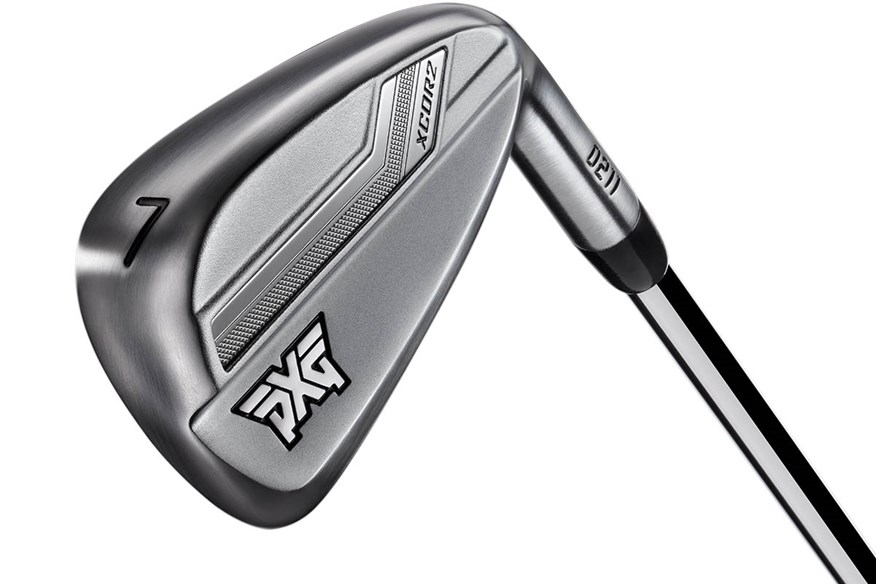

The XCOR2 isn’t forged, and they don’t have the brand's famous weight technology (so MOI’s typically 10% lower than PXG premium irons), but apart from that you’re buying into the brand's knowledge and know-how for a very affordable price.
PXG have always made great-looking irons, I’m yet to meet anyone who doesn’t like their shape, my gut feeling is also many club golfers will struggle to feel the difference between this and the brand's premium forged and fully adjustable models. Even though the model is two years old it was our second fastest and tied longest mid-handicap iron of 2024.
TG Test Pro Data 7-iron (28°):
Ball Speed: 130.1 mph | Backspin: 5057 rpm | Carry: 198 yds | Shot Area: 193.6 yds2
Read our full PXG 0211 XCOR 2 irons review.
Pros
- Incredible value-for-money especially for PXG's standards
- Amazing feel and sound
- Impressive distance
Cons
- Not the best stopping powers
| Stock shafts | True Temper Elevate MP (s) | Elevate Tour (s) | Nippon Modus Pro 125 (s) | UST Recoil Dart (g) | Project X Cypher (g) | Mitsubishi MMT (g) |
| 7-Iron loft | 28° |
What about stopping power?
We’re all about transparency here at TG. And while the XCOR2s do over-deliver in many respects, particularly with regard to distance and ball speed, they do have a trade-off that you need to be aware of. Due to their strong loft (28° – 7-iron), players without sufficient swing speed will struggle to launch the ball with enough spin, shot height, and descent angle to get shots to stop quickly on the green. Both the Ai-Smoke and Qi models registered higher launch angles, peak heights, and descent angles. The XCOR2s also fell below the test average for backspin, only just creeping above 5,000 RPM.
Slower swinging players may want to consider a lighter, higher launching shaft, and perhaps a ball offering outstanding mid-game spin to help counteract any leak in stopping power.
The bottom line remains, however, that these irons are a fantastic, cost-effective choice in 2024.
How do we test golf irons?
To produce the most accurate and reliable test data available, we created a controlled environment with an indoor test lab at Keele Golf Centre. We used premium Titleist Pro V1x golf balls and collected data points from the ball and club for every shot hit using a Foresight GQ Quad launch monitor.
We chose Foresight as their launch monitors are recognized as industry-leading and they replicate the technology employed by top brands when testing their own clubs and balls. They’re also used by many of the best players in the world.
We believe it’s imperative to have a consistent and accurate striker when testing golf clubs and balls in order to ensure a fair test and create useful data. Our go-to club tester is PGA Professional and Custom Fit Technician Neil Wain. We utilize Neil’s services as he’s a very consistent striker of the golf ball, which means we don’t need to remove lots of mishit data (which is an inefficient use of energy and hitting time). It also allows us to create clean accurate comparison data which can be relied upon for proper analysis.
As an amateur, Neil played for England, before turning professional off a +4 handicap. He’s a fully qualified PGA Professional and is respected amongst his peers as a player, teacher, and custom fitter.
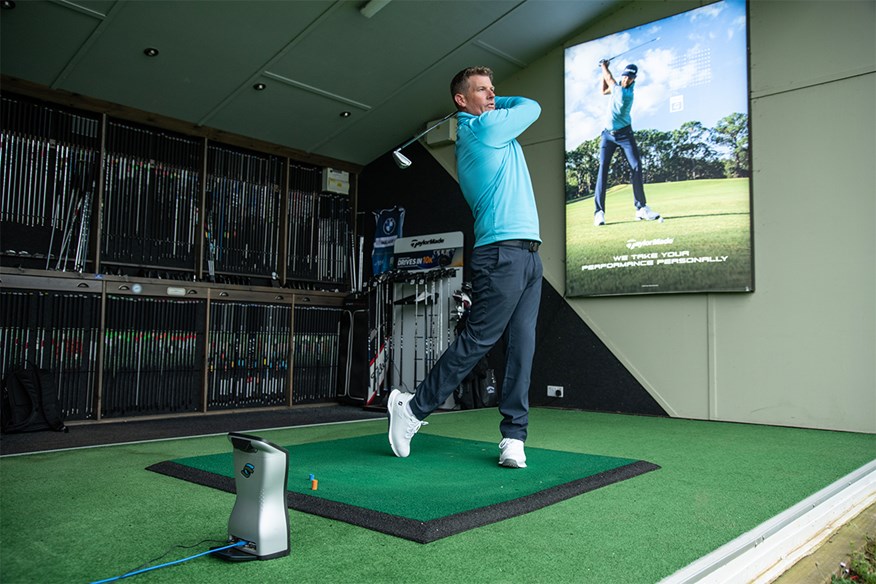
We test 7-irons in a stock stiff flex steel shaft from any set, irrespective of what loft the iron may be. For each model tested we capture data for 12 shots our test pro is happy with. Only once all clubs within a test have been hit do we start looking at analyzing the data.
When analyzing our data carry distance is a huge factor as it’s important to many golfers on the golf course. For irons, we look very closely at backspin, peak height, and descent angle as these play a crucial role in being able to score on the golf course.
Virtually all golfers want a degree of forgiveness from their irons, so we also look at how far shots have traveled offline, and the difference between our tester’s longest and shortest hits. By multiplying the difference between the furthest left to furthest right by the drop-off from the longest to shortest hits we get a dispersion/shot area (in SQ YDS) to guide golfers to the most accurate iron option.
You can read more about how we test golf equipment at Today’s Golfer here.
Best Mid-Handicap Golf Irons for Distance 2024
Along with the PXG 0211 XCOR2 irons, our Test-Pro registered average 7-iron carry distances of 195 yards and above with the following mid-handicap irons:
A cap-back game improver that promises to deliver straight distance
Best overall mid-handicap irons
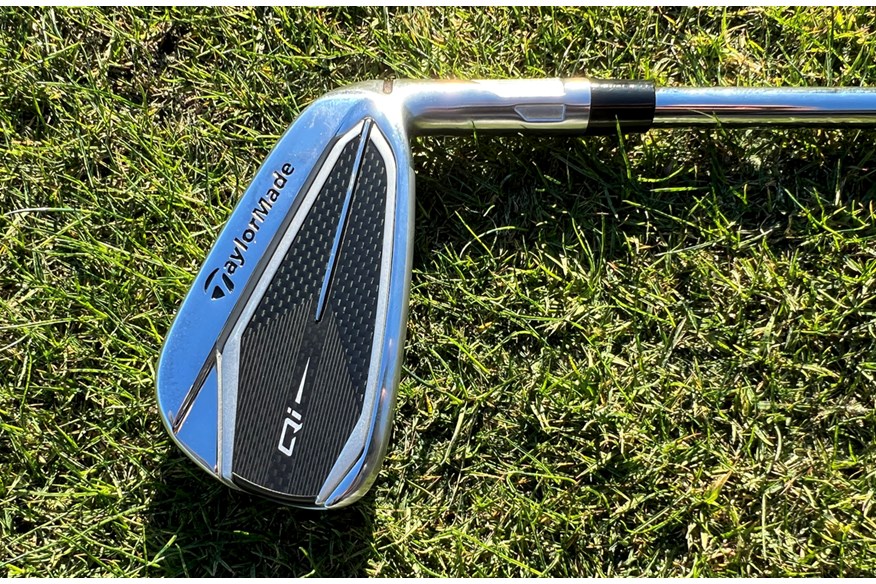

The Qi has a huge amount going for it. The model has a really attractive and desirable head shape and profile, yet it maintains good levels of hosel offset to help flight shots higher for additional carry distance.
I love the way that thanks to TaylorMade’s SelectFit adjustable hosel system golfers can also try this model at weaker or stronger lofts. The idea allows golfers to see before they buy the effect loft and lie adjustments have on performance and data which means this versatile model is well suited to a vast audience of abilities, speeds, and deliveries. It also means you might well not need to opt for the slightly larger Qi XL to play TaylorMade’s most lofted and easy-to-flight game improvement iron.
As nice as TaylorMade’s ‘Qi = Straight Distance’ tagline is please remember it only really comes into play in the mid and longer irons, as shorter irons don’t have a right-sided bias. If you don’t use long irons the concept could be a bit wasted on you. If you do then the Qi will help hit shots a little straighter and closer to your target as long irons are inherently tough to hit accurately, especially from the turf.
Our test pro’s hitting data shines a light on how the Qi is a super quick and powerful iron option in 2024. At 198 yards it was tied at the top of the pile as the longest mid-handicap iron we hit this year. The model also posted our 3rd fastest ball speed, especially impressive when you factor in it isn’t the very strongest lofted 7-iron within the category.
Those headline numbers are all well and good, but my eye is drawn to how the model launched and flew higher than our test averages. That performance led to shots hitting the green at a steeper angle which makes the Qi playable in a way traditional strong lofted irons never were a decade ago. Throw in a dispersion/shot area 2.2% tighter than our test average and it’s not too hard to spot why I feel the model warrants a position among our best-performing mid-handicap irons of 2024. Thanks to TaylorMade’s new two-year product cycle strategy the Qi also won’t feel old hat or out of date until deep into 2025.
TG Test Pro Data 7-iron (28°):
Ball Speed: 129.2 mph | Backspin: 5065 rpm | Carry: 198 yds | Shot Area: 267.6 yds2
Read our full TaylorMade Qi irons review.
Pros
- Available in stronger and weaker lofts for gapping purposes
- A bulletproof iron that will stand the test of time
- Extremely good-looking forgiving iron for mid-handicap golfers
Cons
- Offset could be off-putting for some golfers
| Stock shafts | KBS Max 85 (s) | Fujikura Ventus Blue TR (g) |
| 7-Iron loft | 28° |
Callaway's fast and forgiving mid-handicap irons
Fastest mid-handicap irons
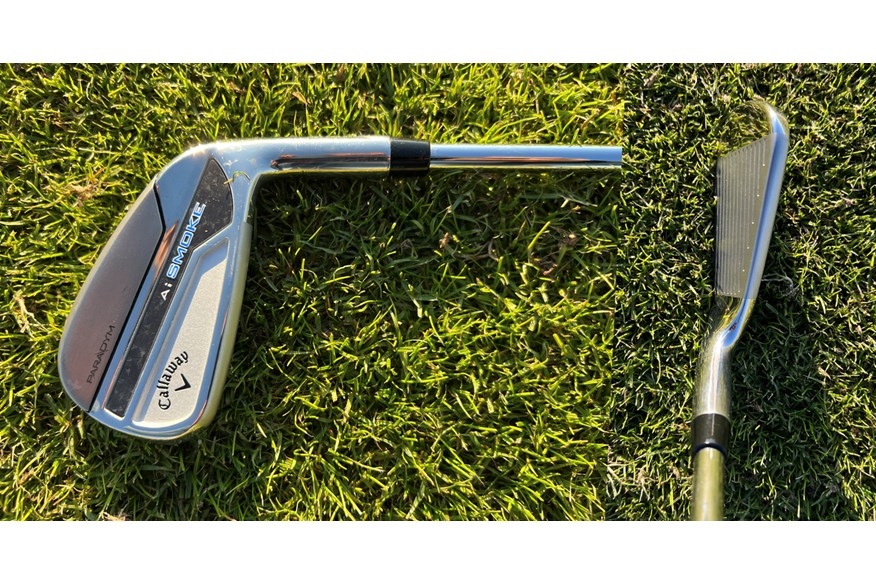

The cast, hollow body, and strong loft, Ai-Smoke is aimed squarely at mid-handicap players and game improvers who won’t entertain spending more than $1K/£1K on a set of irons. And from what I’ve seen it’s a cracking option for golfers who possess a decent degree of club speed.
Thanks to producing the fastest ball speed (130.6mph) of the entire Mid-Handicap Iron category while being just a single yard back from posting the longest 7-iron carry I can safely say the Ai-Smoke is a very powerful beast in the right hands. The whole idea of the club’s hollow body and fast face is that shots launch higher with less spin, so the ball travels further. But what’s really encouraging to my eye is how the Smoke produced bang-on-average launch, spin, and descent angle numbers so shots aren’t just flying like low-spin bullets, that won’t stop on a green.
To my eye, the Ai-Smoke isn’t the most attractively shaped or desirably designed iron in the mid-handicap iron market. But our test pro is using the 4-iron as a powerful long iron option this season, which has to say the model can do a job for any golfer who boasts decent amounts of speed to launch the strong lofts from the turf. For those who don’t check out the more lofted Ai-Smoke HL and lighter Ai-Smoke Max Fast instead.
Undoubtedly there will be critics that hold up the Ai-Smoke’s 18-yard carry distance drop-off as the drawback of using uncontrollable modern, fast face, hollow body irons. But remember our data is created using a a test pro. Club golfers at lesser speeds are very likely to see smaller differences between on and off-center hits, and our second most accurate iron in the category (the Ping G430) also boasts similar thin, fast face tech. From what I’ve seen I have zero reservations in naming the Ai-Smoke among my best four Mid-Handicap irons of 2024.
TG Test Pro Data 7-iron (28°):
Ball Speed: 130.6 mph | Backspin: 5311 rpm | Carry: 197 yds | Shot Area: 552.6 yds2
Read our full Callaway Paradym Ai-Smoke iron review.
Pros
- A sleek new look for Callaway game improvement irons
- A lot of iron for less than $1K/£1K
- Slightly weaker lofts make it easier to gap these irons
Cons
- Make sure you have enough speed to launch this model successfully
| Stock shaft | True Temper Elevate (s) | Project X Cypher 2.0 (g) | Mitsubishi Tensei Blue White (g) |
| 7-Iron loft | 28° |
The most affordable mid-handicap irons perform exceptionally well
Best affordable mid-handicap irons
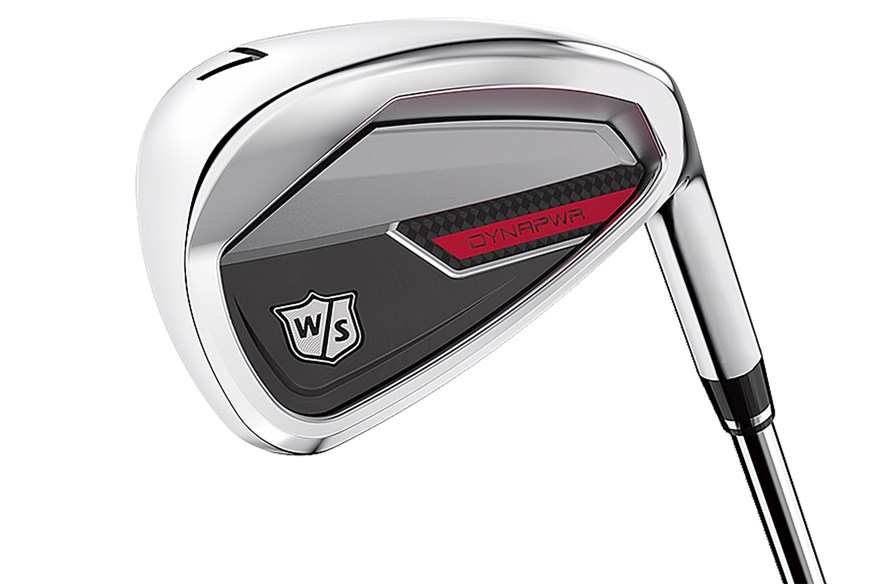

Thanks to the bigger head shape and more offset (which some like for reassurance and confidence, and others won’t) I reckon the model will be most at home in the hands of good-speed golfers who aren’t overly fussy about head shapes and profiles. If you’re 7-iron speed is creeping anywhere close to 75mph you’re highly likely to be better served by a more lofted HL alternative. If you’re after a bargain with the Dynapower you should be able to find the model for very sensible money.
TG Test Pro Data 7-iron (27°):
Ball Speed: 127.8 mph | Backspin: 4910 rpm | Carry: 195 yds | Shot Area: 196.8 yds2
Pros
- Good distance
- Works well for slower swing speeds as well as quick
- Excellent value
Cons
- Not the best for generating spin
| Stock shaft | KBS Max Ultralite (s) |
| 7-Iron loft | 27° |
Launch Monitor Data
Here is the launch monitor data from our Test-Pro during the mid-handicap irons testing. Comparative data for all of the other irons in our 2024 cohort can be found by visiting the category-specific pages listed below.
Best Mid-Handicap Golf Irons 2024
| Iron | 7-Iron Loft | Ball Speed | Launch Angle | Backspin | Height | Descent Angle | Carry Distance | Carry Distance Drop Off | Shot Area |
| TaylorMade Qi | 28° | 129.2 MPH (3) | 15.6° | 5065 RPM | 33 YDS | 44.2° | 198 YDS (T1) | 12 YDS | 267.6 SQ YDS |
| PXG 0211 XCOR2 | 28° | 130.1 MPH (2) | 13.6° | 5057 RPM | 29 YDS | 41.8° | 198 YDS (T1) | 16 YDS | 193.6 SQ YDS |
| Callaway Paradym AI Smoke | 28° | 130.6 MPH (1) | 14.5° | 5311 RPM | 32 YDS | 43.4° | 197 YDS (3) | 18 YDS | 552.6 SQ YDS |
| Wilson Dynapower | 27° | 127.8 MPH | 15° | 4910 RPM | 31 YDS | 42.7° | 195 YDS | 8 YDS (T3) | 196.8 SQ YDS |
| Cobra Forged Tec X | 27° | 127.7 MPH | 13.9° | 4872 RPM | 29 YDS | 42.1° | 191 YDS | 9 YDS | 360 SQ YDS |
| PXG 0311 XP GEN6 | 27° | 126.2 MPH | 13.7° | 4726 RPM | 27 YDS | 40.8° | 190 YDS | 20 YDS | 470 SQ YDS |
| Mizuno JPX923 Hot Metal | 28.5° | 127.6 MPH | 14.9° | 5748 RPM | 31 YDS | 44.2° | 190 YDS | 13 YDS | 243.1 SQ YDS |
| Srixon ZX4 | 28.5° | 126.4 MPH | 14.7° | 5030 RPM | 30 YDS | 43.1° | 189 YDS | 22 YDS | 594 SQ YDS |
| Ram FXT | 126.1 MPH | 15.4° | 5395 RPM | 31 YDS | 43.7° | 189 YDS | 13 YDS | 161.2 SQ YDS | |
| Cleveland XL ZipCore | 29° | 125.1 MPH | 14.6° | 4719 RPM | 29 YDS | 41.8° | 188 YDS | 15 YDS | 210 SQ YDS |
| Ping G430 | 29° | 125.8 MPH | 14.9° | 5117 RPM | 30 YDS | 43.3° | 187 YDS | 7 YDS (2) | 110.6 SQ YDS (2) |
| Inesis 500 | 125.1 MPH | 15.6° | 5456 RPM | 31 YDS | 43.5° | 187 YDS | 8 YDS (T3) | 181.6 SQ YDS | |
| Titleist T350 | 29° | 125.5 MPH | 14.3° | 5159 RPM | 29 YDS | 42.6° | 186 YDS | 11 YDS | 167.2 SQ YDS |
| Cobra Darkspeed | 27° | 126.7 MPH | 12.4° | 5298 RPM | 26 YDS | 40.7° | 186 YDS | 8 YDS (T3) | 129.6 SQ YDS |
| Takomo 101 | 30° | 123.8 MPH | 14° | 4784 RPM | 27 YDS | 40.8° | 184 YDS | 4 YDS (1) | 52.4 SQ YDS (1) |
| Yonex GS i-Tech | 125.2 MPH | 13.8° | 5373 RPM | 28 YDS | 42.2° | 184 YDS | 21 YDS | 611.1 SQ YDS | |
| Vega Mizar Plus | 30° | 125.4 MPH | 14.3° | 5858 RPM | 29 YDS | 43.8° | 182 YDS | 22 YDS | 420.2 SQ YDS |
| Sub 70 699 | 31° | 124.1 MPH | 13.3° | 5847 RPM | 27 YDS | 42.1° | 179 YDS | 11 YDS | 154 SQ YDS |
| MacGregor V-Max | 118.3 MPH | 17.5° | 6305 RPM | 31 YDS | 45.3° | 171 YDS | 8 YDS (T8) | 121.6 SQ YDS (3) | |
| AVERAGE | 126.1 MPH | 14.5° | 5265 RPM | 29.5 YDS | 42.7° | 187.9 YDS | 12.9 YDS | 273.5 SQ YDS |
